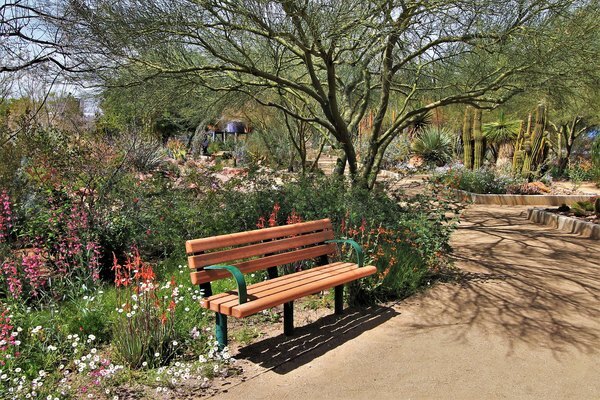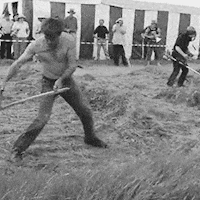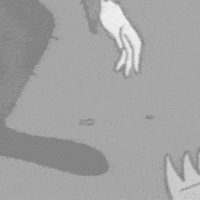
(Daniel Watson/Unsplash)
I like many tedious things, but one of the tedious things I do not like is lawn care in its various forms. Back in 2015 I wrote two pieces about the topic that highlighted the fact that, when you break it down, both raking leaves and mowing grass are constructs that were created for reasons of social structure more than actual interest in greenery.
And of course, I’m thinking about this issue because I found myself mowing a lawn over the weekend. Everything about the process was annoying—setting up the mower, acquiring gasoline for said mower, the divots in the grass, the way that mower bags fill up extremely quickly, the blowing of grass into the yard, and the fact that your neighbors judge you if you don’t buy into the system.
Culturally, it’s of limited benefit—unlike shoveling snow, it doesn’t make it easier to walk outside if you have a sidewalk and a driveway—and the environmental benefits may not be worth it in a lot of places.
One of those places is Nevada, where the water authority in the city of Las Vegas is attempting to make the case to literally ban lawns. The reason? Many lawns are largely ornamental in Vegas, rather than natural or functional, and they consume a lot of water—a resource that can be difficult to manage in Western states that don’t have a nearby body of water to pull from.
In areas where, for example, the grass is there basically to look nice rather than because it’s used by homeowners, and that nobody walks on, it can be a major pressure on the water supply.
The Southern Nevada Water Authority says that many residents of the Las Vegas region are doing much of this on their own. But there’s a need to take things further at a municipal level, they say.
“The public perception outside of Las Vegas is certainly much different—and has been for a long time—than the water conservation ethic within the community,” said Colby Pellegrino, the water resources director for the group, in comments to the Associated Press.

A more desert-y example of what greenery could look like without grass in Las Vegas. (Renee Grayson/Flickr)
If it happens, it would be a first—the first time a permanent ban on ornamental lawns has been implemented, going a step further than California did during its drought a few years back (which also inspired a Tedium piece on desalination), when it banned artificially watering lawns temporarily.
The nice thing about all this is that it’s bringing out the lawn haters, such as Above the Law contributor Jonathan Wolf, who pointed out, as I did a few years back, that lawns came into being as a way for elites to highlight their status.
“It’s not just the origin of lawns and the water scarcity they cause that make lawns awful. Think of all the gasoline wasted running lawnmowers, and all the human capital squandered on mowing lawns,” he wrote.
(I will gladly join in your mission, Jonathan.)
And even the locals have warmed to this idea, with the Las Vegas Sun editorial board coming on the water authority’s side. “The proposal may sound extreme, but what’s really extreme is the drought we’re experiencing and the pressure it’s putting on our water resources,” the newspaper wrote in a piece.
Alas, as much as I dislike lawns, I have one, and as a result, I will be mowing this summer—with my old shoes likely to get a whole lot greener as a result. See, I don’t live in Vegas, so I can’t use rain as an excuse.
I will look longingly at you, Nevada.
Time limit given ⏲: 30 minutes
Time left on clock ⏲: 3 minutes, 22 seconds



